
Review of current literature regarding the transfer of phytocannabinoids and endocannabinoids into human breast milk.
Following the presentation, participants will be able to:
IBLCE Content Outline (I, II, IV, V, VII)
I. Development & Nutrition
II. Physiology & Endocrinology
IV. Pharmacology & Toxicology
V. Psychology, Sociology & Anthropology
VII. Clinical Skills
Over the years, many practitioners have developed techniques to support the families of babies suffering with colic, reflux and allergy. Families scour the internet and search the supermarket shelves for solutions to their children’s unsettledness. There is a general feeling that, while normal behaviours of infancy are being pathologised as ill health because social media is presenting families with an unrealistic ideal of parenting, additionally our populations are actually becoming more allergic and our babies more symptomatic. This presentation will focus on strategies for calming and soothing babies, reducing crying and supporting the whole family’s well-being, which have been reviewed in the academic literature.
IBLCE Content Outline (I, III, IV, V, VI, VII)
I Development & Nutrition
III Pathology
IV Pharmacology & Toxicology
V Psychology, Sociology & Anthropology
VI Techniques
VII Clinical Skills
It has long been established that exclusive breastfeeding is the optimal infant feeding method for both woman and baby for the first six months of life. However, the rates of breastfeeding across Australia demonstrate there are challenges being faced by mother-baby dyads across all geographical, cultural and socio-economical populations. One hypothesis to explain this phenomenon is the rapidly changing landscape of Australian birth, with rates of intervention increasing significantly in recent years. This webinar will consider contemporary research to explore how induction, analgesia, and assisted and operative birth interventions may impact the mother-baby dyad and the breastfeeding relationship.
IBLCE Content Outline (I, II, III, IV, V, VI, VII)
Breastfeeding, a vital process, still holds many mysteries, particularly in milk transfer from mother to infant. Gaining a profound understanding of the regulation of this transfer, potential points of dysfunction, and ways to optimize breastfeeding outcomes is paramount. While systems biology has been proposed as a method for understanding human milk, the application of systems medicine to unravel the complexity of breastfeeding remains unexplored. By merging systems biology and systems medicine into a conceptual framework and using engineering design principles, we can introduce fresh perspectives to the system of human milk transfer. A more comprehensive understanding of the bio-physiological factors dictating human milk supply could revolutionize our approach to early milk loss or engorgement. However, before developing enhanced therapeutic strategies, we must first identify, define, and comprehend the biomechanical mechanisms that regulate human milk transfer from breast to stomach. This presentation will unveil new techniques that have the potential to improve breastfeeding outcomes significantly. Imagine the possibilities if we harness the latest technology's power to understand better the biomechanical process of milk ejection and the regulation of human milk transfer. What if we could assist the infant’s struggle with fast or slow milk ejection or prevent it altogether? What if we could decipher how breast milk supply is physiologically dictated by removing milk or environmental changes and use this knowledge to address early milk loss or engorgement? Jimi’s presentation on evaluating lactation physiokinetics will explore these exciting prospects. She will introduce innovative technology designed to revolutionize the diagnostics of breastfeeding failure and significantly improve breastfeeding outcomes.
IBLCE Content Outline (I, II, III, VI, VII)
I. Development & Nutrition
II. Physiology & Endocrinology
III. Pathology
VI. Techniques
VII. Clinical Skills
The human tongue’s function is indispensable for survival – for safe swallowing, sucking, handling solids, forming the bony structures, and for a physiological tongue rest position and speech. The lingual frenulum is a midline structure under the tongue blade with extensive variation in shape and thickness allowing for normal or limited tongue mobility. The findings in the literature about the anatomy and function of the tongue and the lingual frenulum will be introduced, matched by the in-vivo presentation of the anatomy with many photos. Combining results from different articles will lead to some implications on swallowing, breastfeeding, eating solids, airway health and speech.
IBLCE Content Outline (I, II, III, VI, VII)
I. Development & Nutrition
II. Physiology & Endocrinology
III. Pathology
VI. Techniques
VII. Clinical Skills
Lactation mastitis is a debilitating inflammatory breast disease occurring in 1 of 5 Australian breastfeeding women. The disease causes reduced milk synthesis, localised pain, and the rapid onset of systemic symptoms including fever, muscle aches, chills and fatigue, leading many women to use supplementary formula or cease breastfeeding altogether. Forty years ago, it was believed that the underlying cause of mastitis was infection of the breast with pathogenic bacteria. This old paradigm was built upon work within the dairy industry showing that mastitis in dairy cows can be significantly reduced by sterilisation of milking equipment and routine administration of antibiotics. However, this simple relationship between pathogens and disease in women is not supported by current clinical evidence and it has become clear that the underlying causes of mastitis in breastfeeding women are more complex. Our research is providing new insights into the biology of mastitis and challenging the old paradigm. Through developing a better understanding of the causes of mastitis, we can develop new treatment and prevention approaches to this debilitating disease and improve breastfeeding outcomes.
IBLCE Content Outline: 1 L CERP (I, II, III, IV, V, VI, VII)
I. Development & Nutrition
II. Physiology & Endocrinology
III. Pathology
IV. Pharmacology & Toxicology
V. Psychology, Sociology & Anthropology
VI. Techniques
VII. Clinical Skills
In this presentation, Dr Kellams will review how to support families with exclusive breastfeeding, how to determine if supplementation is needed, how to prevent the need for supplementation, and how to get back to breastfeeding if supplementation occurs.
Following the presentation, participants will be able to:
IBLCE Content Outline: 1 L Cerp (I, III, IV, V, VI, VII)
Previous research revealed numerous barriers to breastfeeding. However, recent research has revealed that some barriers come in the guise of “help.” This session is based on new research in my book Breastfeeding Doesn’t Need to Suck and identifies how mothers’ thoughts can undermine their breastfeeding efforts. It also addresses social support: when it helps and when it becomes a barrier. This session describes effective support from partners, grandmothers, community groups, and healthcare providers. The final section covers a topic we do not like to think about: when breastfeeding fails. However, lactation consultants can support women through this difficult transition as well. Attendees will learn how to address these hidden barriers and how to help women heal from breastfeeding grief and form a secure attachment with their infants.
IBLCE Content Outline (V, VII)
V. Psychology, Sociology & Anthropology
VII. Clinical Skills
In this session, Alexandra will explore how the language we use to talk about breastfeeding (especially feeding in front of other people) matters. Using examples from online newspaper comments about discretion when breastfeeding in public, Alexandra shows how quickly and pervasively value judgments about women’s sexual and moral characters are created and shared through public discourse. She will then address how infant feeding practitioners might be able to apply these insights to help the families they support resist and challenge language that can threaten their confidence to breastfeed their baby responsively whether in public or not.
IBLCE Content Outline (V, VII)
V. Psychology, Sociology & Anthropology
VII. Clinical Skills
This presentation aims to enhance the understanding of lactation consultants regarding the safe use of maternal medications during breastfeeding. We will discuss the vital benefits of breastfeeding for maternal-infant dyads, delve into the physiology of how drugs transfer into human milk, and explore both actual and perceived risks to infants from maternal medication use. By examining current research and clinical strategies, we will identify methods to minimize infant risk while supporting maternal health, thus enabling informed decision-making to promote continued breastfeeding. This presentation seeks to bridge the gap between pharmacological theory and practical lactation consulting to optimize outcomes for both mothers and their infants.
IBLCE Content Outline (III, IV, V, VII)
III. Pathology
IV. Pharmacology & Toxicology
V. Psychology, Sociology & Anthropology
VII. Clinical Skills
Caring for the family of a cleft-affected newborn can require a different level of perspective. This presentation will identify the different types of clefts and how they can affect breastfeeding, how to support pumping and breastfeeding, and how to support the possibility of mourning the loss of breastfeeding.
Following the presentation, participants will be able to:
IBLCE Content Outline (I, III, V, VI, VII)
I. Development & Nutrition
III. Pathology
V. Psychology, Sociology & Anthropology
VI. Techniques
VII. Clinical Skills
Maternal (parental) human milk has particular importance in the newborn care unit, where infants are sick or very premature. However this often involves exclusive expression to establish and maintain milk supply and parents may have extra physiological challenges such as abbreviated mammary tissue remodelling because of premature birth, and exposure to medications such as steroids. In this context, there is a high risk of low milk supply, non-exclusive human milk feeding, and early cessation of expressing/breastfeeding. This presentation will present results from an exploratory analysis of milk expression data collected in a randomised trial. 132 participants who had given birth at less than 32 weeks of pregnancy were recruited and asked to record their milk expression on day 4, 14 and 21 after birth. They subsequently provided information on feeding status up to four months corrected age. The presentation will cover the relationship of expressing pattern with milk yield (frequency, gaps between sessions and duration), the impact of non-modifiable factors such as prior breastfeeding experience and the relationship of milk yield with later breastfeeding outcomes. Practical rules of thumb are suggested to help guide clinical practice.
IBLCE Content Outline (I, II, III, IV, V, VI, VII)
I. Development & Nutrition
II. Physiology & Endocrinology
III. Pathology
IV. Pharmacology & Toxicology
V. Psychology, Sociology & Anthropology
VI. Techniques
VII. Clinical Skills
This presentation will discuss the negative effects that the US governmental policies have had on Indigenous nations, including their health, livelihoods, and culture. Jasha will highlight the importance of human milk as a cultural practice and how Indigenous communities are implementing traditional knowledge to address the root causes of present-day challenges.
IBLCE Content Outline (V, VII)
V. Psychology, Sociology & Anthropology
VII. Clinical Skills
Human milk is not just food but in addition represents a highly sophisticated maternal-neonatal signalling system controlled by the human lactation genome. Recent evidence points to an intensive exosome cross-talk between pancreatic beta-cells and exosomes transmitted by various tissues and organs to pancreatic islets and insulin-producing beta-cells. It is thus conceivable that milk-derived exosomes (MEX) and their RNA cargo (microRNAs and lncRNAs) may also affect postnatal beta-cells and promote beta-cell proliferation and beta-cell mass expansion during the period of breastfeeding. In fact, translational evidence indicates that human MEX microRNAs enhance mTORC1/c-Myc-driven/lncRNA H19-mediated beta-cell proliferation that may explain the diabetes-preventive effect of breastfeeding in early life. It is a matter of concern that maternal obesity, gestational diabetes, caesarean delivery and especially MEX-deficient infant formula feeding disturb physiological MEX RNA signalling during the postnatal period and may thereby increase the risk of type 2 diabetes in adult life. In all mammals, MEX RNA signalling fades after weaning, implicated to represent the critical epigenetic switch from proliferating immature to functionally mature beta-cells. Postnatal uptake of bioactive milk exosomes and their RNAs appears to be physiological requirement for beta-cell mass expansion which may have an early impact on the prevention of type 2 diabetes. It is a matter of concern that perinatal factors disturb physiological milk microRNA signalling including caesarean delivery, maternal obesity, gestational diabetes, stressful life events and especially artificial MEX-deficient formula feeding that all may increase the risk of diabetes in adult life.
IBLCE Content Outline (I, II, III, VII)
I. Development & Nutrition
II. Physiology & Endocrinology
III. Pathology
VII. Clinical Skills
This session describes the controversy over whether infant-feeding method affects the risk of childhood obesity. It also answers these questions. What do parents and clinicians need to know about how feeding method alters milk intake and feeding dynamics (breast versus bottle)? How do the components of the milk affect baby’s body function and appetite (human milk versus infant formula)? Does what’s in the bottle make a difference? Also, it covers what families need to know when their exclusively breastfeeding baby gains weight much more rapidly than expected.
IBLCE Content Outline (I, III, VII)
I. Development & Nutrition
III. Pathology
VII. Clinical Skills
Inevitably much of the work of breastfeeding support focuses on establishing a feeding relationship, but we shouldn’t underestimate the challenges that weaning can bring, especially for an older child who has a strong emotional connection to breastfeeding. This presentation describes how we can support parents in making decisions about how to end a breastfeeding relationship and how to go about it in a way that feels authentic and emotionally supportive for all parties. When our society simultaneously devalues natural term breastfeeding and perceives child-led weaning as an ideal, parents can be left feeling isolated. What role can breastfeeding supporters have?
IBLCE Content Outline:
1 L Cerp (I, V, VII)
In this presentation, participants will learn about the causes of feeding aversion in breastfeeding babies and signs, even ones that may be quite subtle, that are indicative of aversion at the breast. They will be instructed on ways to support mothers in maintaining a breastfeeding relationship through the use of responsive feeding measures. Responsive feeding is a reciprocal process between a parent and an infant where infants communicate their hunger and fullness cues, and parents respond to those cues. With responsive feeding measures, caregivers are taught ways to manage feeding aversion, without force or pressure and through the use of consistent and predictable responses which help teach the baby self-regulation with eating. Participants will be able to support families in identifying and even preventing more intense aversive feeding behaviours that could sabotage the breastfeeding relationship. While aversion to the breast can be stressful to the family, it can be managed with the right responsive feeding techniques. Participants will also be educated on ways to collaborate with other health care professionals, such as a dietitian if the feeding situation is more complex and parents may be experiencing fear due to poor weight gain.
IBLCE Content Outline: 1.5 L CERP (I, III, V, VI, VII)
Breastfeeding offers metabolic benefits for both mother and child, particularly in the context of maternal metabolic conditions such as diabetes, obesity and polycystic ovary syndrome (PCOS). However, lactating parents with insulin-resistant conditions experience more difficulties in establishing and sustaining lactation. In this presentation, we will review the basic pathophysiology of diabetes and PCOS, discuss the impact of these conditions on breastfeeding outcomes, outline the likely underlying mechanisms for lactation difficulties in women with metabolic disease, and describe clinical management considerations.
IBLCE Content Outline: 1 L CERP (I, II, III, VII)
In this presentation, Kathryn will take participants through finding out the news you are expecting more than one, mixed emotions, preparation to breastfeed, premature birth, late preterm and early term birth, tandem feeding, and ongoing breastfeeding. Multiple birth families have more barriers to establishing breastfeeding than the average singleton family and often need ongoing support.
IBLCE Content Outline (I, II, V, VI, VII)
I. Development & Nutrition
II. Physiology & Endocrinology
V. Psychology, Sociology & Anthropology
VI. Techniques
VII. Clinical Skills
Antenatal breastmilk expression (ABME) has been shown to be effective in reducing the use of infant formula supplementation and significantly improves postnatal lactation performance by causing early establishment of adequate milk supply. What are the dos and don’ts of this technique?
Following the presentation, participants will be able to:
IBLCE Content Outline: 1 L Cerp (I, II, III, VI, VII)
For decades, the inappropriate marketing of commercial formula milk has shaped our societal and professional norms, values and beliefs around infant and young child feeding. Formula milk marketing, not the product itself, disrupts informed decision-making through the deliberate misuse and distortion of scientific information to exploit parental emotions and aspirations. This presentation will look at the latest evidence supporting the importance of The Code of Marketing Breastmilk Substitutes and discuss the challenges faced in the digital age. It will also explore individual conflicts of interest and the role of healthcare workers in navigating the increasingly pervasive formula milk marketing landscape.
IBLCE Content Outline (VII)
VII. Clinical Skills
In this presentation, Ginna will take a look back at history, and then review the current literature on nipple soreness in breastfeeding mothers. She will explore various approaches to preventing/managing pain, look at some new modalities not yet widely in use, and finish with some unique case studies.
IBLCE Content Outline: 1.5 L CERP (I, III, IV, VI, VII)
I. Development and Nutrition
III. Pathology
IV. Pharmacology and Toxicology
VI. Techniques
VII. Clinical Skills
Most cis-women can exclusively breastfeed. However, a small cohort are unable to produce enough milk to exclusively breastfeed due to having primary low milk supply (PLMS). Recent qualitative studies have found that having breastfeeding difficulties and in particular, PLMS, can have significant implications for mothers’ mental health and well-being in the postpartum period. Research has also revealed that this cohort struggles to find information about PLMS and that they tend to be dissatisfied with the breastfeeding and lactation support they receive from healthcare professionals and others. This presentation will explore the phenomenon of PLMS - causes, prevalence, and recent research, and challenges faced by parents who experience it. Practical approaches to supporting this cohort will be outlined, with an emphasis on providing manageable, practical care plans that support lactation, psychological well-being, maternal mental health and the mother-baby relationship. The presentation will also address the emotional and social impacts on mothers of being unable to breastfeed exclusively in the way that they had hoped and the embodied nature of what it is to be a woman whose body cannot make sufficient milk. The importance of skilled and individualized breastfeeding support for parents with PLMS will be highlighted and specific areas for improving the support provided to women with PLMS will be illuminated.
IBLCE Content Outline (I, II, III, IV, V, VI, VII)
I. Development & Nutrition
II. Physiology & Endocrinology
III. Pathology
IV. Pharmacology & Toxicology
V. Psychology, Sociology & Anthropology
VI. Techniques
VII. Clinical Skills

Kathleen Kendall-Tackett
Dr. Kendall-Tackett is a health psychologist, IBCLC and the owner and editor-in-chief of Praeclarus Press, a small press specializing in women's health. Dr. Kendall-Tackett is editor-in-chief of the journal, Psychological Trauma and was founding editor-in-chief of Clinical Lactation, a position she held for 11 years. She is Fellow of the American Psychological Association in Health and Trauma Psychology, past president of the APA Division of Trauma Psychology, and a member of APA’s Publications and Communications Board.

Ginna Wall
Ginna ran the lactation program at the University of Washington Medical Center in Seattle Washington for 35 years. She led the way to Baby-Friendly Hospital certification in 2009 and recertification in 2019. Before that she was an acute care inpatient pediatric nurse, a camp nurse, a childbirth educator, and a doula. She enjoys teaching healthcare workers about all the things she learned along the way.

Wendy Ingman
A/Prof Wendy Ingman is a breast biologist at the University of Adelaide, based at The Queen Elizabeth Hospital. Her research explores the biology of how the breast develops and functions to better understand how disease states occur, including lactation mastitis and breast cancer. Wendy’s research challenges old paradigms and explores new concepts in how the breast develops and functions to improve breast health across the life course.

Shel Banks
Shel Banks is an UK-based IBCLC, specialising in the unsettled baby with symptoms of colic, reflux, allergy and faltering weight. She also works in the NHS as well as working and volunteering for various national and international organisations in the world of infant feeding and early parenting. She was involved in 3 x infant feeding-focussed NICE Guidelines - including NG75 on Faltering weight in Infants and Young Children. In addition, Shel is clinical director for the mobile app - Anya, working to support improved pregnancy, parenting and infant feeding outcomes for families everywhere. Shel is currently undertaking her doctoral study on supporting parents of unsettled babies with colic, reflux and allergy, through the Maternal and Infant Nutrition and Nurture (MAINN) Group at the University of Central Lancashire (UCLAN), UK. She is the author of the book Why Formula Feeding Matters (2022).

Nancy Mohrbacher
Nancy began helping nursing families in 1982 as a volunteer peer supporter. She became an IBCLC in 1991 and spent 10 years growing a large private lactation practice in the Chicago area, where she worked one-on-one with thousands of families. Nancy is the author or co-author of three current books for nursing parents and two for lactation specialists, including her 2020 textbook, Breastfeeding Answers (2nd ed). Her Breastfeeding Solutions app is used worldwide, and her YouTube channel has millions of views. She currently creates innovative lactation education for aspiring and recertifying lactation consultants online at LactaLearning.com and speaks at events internationally. Nancy was in the first group of 16 to be honoured for their contributions to breastfeeding with the designation FILCA, Fellow of the International Lactation Consultant Association.

Emma Pickett
First qualifying as a breastfeeding counsellor with the UK’s Association of Breastfeeding Mothers in 2007, and previously their chair for 9 years, Emma qualified as an IBCLC in 2011 and has written 4 books (You’ve Got It In You: A Positive Guide to Breastfeeding, The Breast Book, Supporting Breastfeeding Past the First Six Months and Beyond, and Supporting the Transition From Breastfeeding). She volunteers as part of the training team for the UK National Breastfeeding Helpline and at groups in her local area in North London. Her private practice focuses on supporting breastfeeding families at all stages. Her podcast, “Makes Milk with Emma Pickett” has a regular focus on weaning alongside all aspects of the breastfeeding experience.

Ilana Levene
Ilana Levene is a neonatal doctor working in Oxford, England. She recently completed a PhD at the University of Oxford exploring the dynamics of breastmilk expression after very preterm birth. Her research interests are lactation, neonatal nutrition and perinatal equity. She co-chairs an advocacy and knowledge-sharing organisation called the Hospital Infant Feeding Network. She was on the steering group of two Quality Improvement Toolkits on optimising maternal breastmilk after preterm birth, with the British Association for Perinatal Medicine.

Grace Tay Yue Wen
Dr Grace is a practising lactation consultant at Gloria Lactation Centre, and founder of Gloria Confinement Centre, a postnatal care centre located in Penang, Malaysia. She graduated with Honours from University College Dublin in 2012 and received the Malaysian Medical Association Book Prize for Obstetrics & Gynaecology, and for Surgery. Dr Grace is currently engaged in research with the RCSI-UCD Malaysian Campus for the “Evaluation of an Antenatal Lactation Preparation Package (ALPP) on Breastfeeding Practices Among Postnatal Mothers in a Postnatal Care Centre in Penang”, and “BF City— determining the indicators of a breastfeeding-friendly city”. She is also an active member of the Making Penang Breastfeeding-Friendly (MBPF) State Government Initiative since 2019.
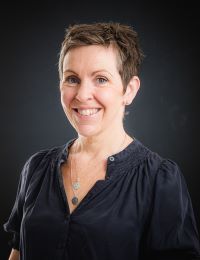
Caoimhe Whelan
Caoimhe (Irish name pronounced “Keeva”!) is a private practice IBCLC who lives in Dublin. She qualified as an IBCLC in 2016 after following the "Pathway 1" route as a voluntary breastfeeding counsellor. Caoimhe has a special interest in how mothers experience breastfeeding, postpartum mental health, breastfeeding difficulties and low milk supply, and breastfeeding education. In 2023 she graduated from University College Dublin with an MSc by research, having undertaken a qualitative study on mother’s lived experiences of breastfeeding with primary low milk supply. The first paper from Caoimhe’s research was published in Breastfeeding Medicine in March 2024.
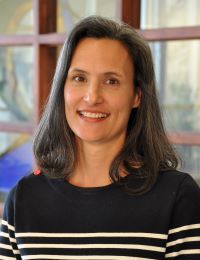
Teresa Baker
Dr Baker serves as the chair in the Department of Obstetrics and Gynecology, Amarillo, TX. She also holds the Rush Endowed chair in Women’s Health and Oncology TTUHSC Amarillo and is co-director of the Infant Risk Center TTUHSC Amarillo. Dr Baker has a combined private and academic ob/gyn practice with the university physicians at TTUHSC. She is interested in breastfeeding, teen pregnancy, and postpartum depression, as well as resident and student education. Together with Dr Thomas Hale they founded the Infant Risk Center which has become an international resource helping to provide support for breastfeeding mothers/infants and their healthcare providers.

Jimi Francis
Dr Jimi Francis became an IBCLC in 1993. She completed a Master of Science degree in nutrition with a focus on infant nutrition at the University of Nevada in Reno and completed a doctoral degree in nutrition at the University of California in Davis. Jimi completed her Dietetics Internship through the University of Iowa with a Fellowship at the 96th Medical Group at Eglin Air Force Base. Currently, Dr Francis is an assistant professor at the University of Texas, San Antonio in the Dept of Kinesiology. She has a private practice as a lactation consultant/nutritionist and serves as a trainer for the Texas Dept of State Health Services Advanced Lactation Management Training for healthcare providers.
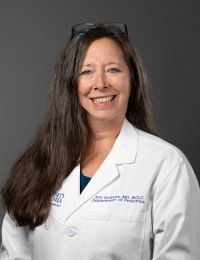
Ann Kellams
Dr Ann Kellams is board-certified in both pediatrics and breastfeeding and lactation medicine, and is an IBCLC and a professor of pediatrics. In 2006, Dr Kellams joined the UVA Department of Pediatrics faculty and became the medical director of the newborn service on the maternity unit. She is the founder and director of UVA’s Breastfeeding and Lactation Medicine program. In 2018, Dr Kellams became the vice chair for Clinical Affairs for UVA’s Dept of Pediatrics. In 2022, she was inducted into the American Pediatric Society, and in 2023 she was in the first class of physicians to become certified by the North American Board of Breastfeeding and Lactation Medicine. She is the immediate past president of the Academy of Breastfeeding Medicine.
Kaytlin Krutsch
Kaytlin Krutsch is a mother, researcher, and professor at the InfantRisk Center at TTUHSC. Her research focuses on medication transfer into breast milk and getting this information into practice. Kaytlin believes mothers deserve more: better answers to their medication questions, healthcare experiences that foster respect, and encouragement that their health is equally as important as their child’s. With a background in nutrition, pharmacology, and research Dr Krutsch was uniquely qualified to step into Dr. Tom Hale’s shoes as the director of the InfantRisk Center in 2023. She has authored two books, 5 chapters, and over 50 articles on lactation pharmacology.

Sarah Lester
Sarah is an IBCLC based in Fayetteville, North Carolina. She has a Bachelor of Science in Biochemistry from NCSU and is the owner of LATCH Breastfeeding and Postpartum Wellness Center. She has a special interest in NICU and preterm babies and tongue and lip restrictions arising from her personal experience. Her first daughter, born at 34 weeks, spent 11 days in the NICU. Her second daughter, born at 37 weeks, immediately presented with an upper lip tie and posterior tongue tie symptoms which made breastfeeding a challenge until release at 11 weeks of age. Her third little girl was diagnosed prenatally with a unilateral cleft lip, alveolus, and palate she pumped with her for three years with comfort nursing. In recognizing the need for better local support, she helped to create and implement the only laser tongue tie release program in our area and the first in the state at Village Family Dental. She attends all procedures to assist with post-treatment latching, aftercare, and support. She is the 2020 recipient of the US Lactation Consultant Association's President's Award.

Jasha Lyons Echo-Hawk
Jasha Lyons Echo-Hawk is a self-described “Intertribal Love Song” belonging to the Seminole, Pawnee, Iowa, Omaha, and Mvskoke Creek Nations. They are Skiri Pâri and a member of the Tom Palmer band and Ecovkle (Deer clan) of the Seminole Nation. Jasha identifies as Two-spirit and is an award-winning equity advocate and organizer. They are the creator of Indigenous Milk Medicine Week and the founding director of the Indigenous Milk Medicine Collective. Jasha currently works as an Indigenous lactation counselor and as a community birthworker, focusing on reclaiming birthkeeping and rematriation for collective liberation. They cherish their role as a parent and enjoy a "Run, Pray, Laugh" lifestyle with their family.

Jill Rabin
Jill Rabin is a pediatric speech pathologist and IBCLC with a private practice in Chicago. She has been working with the 0-3-yr-old population since 1986. Her areas of specialty include facilitating breastfeeding in at-risk populations such as preterm infants, babies with tethered oral tissues and babies with Down syndrome, managing feeding aversion and using the Adapted Baby-Led Weaning Approach® to transition babies with feeding challenges to solids. She co-authored the book Your Baby Can Self-Feed, Too! with Gill Rapley in 2022. Jill lectures nationally and internationally as well as teaching live virtual classes for transitioning to solids to parents of babies. Jill co-moderates an international Zoom group for expectant, pumping and breastfeeding parents of babies with Down syndrome through Julia’s Way and the Massachusetts Down Syndrome Congress.
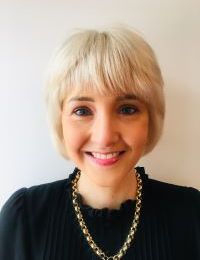
Kate Rassie
Dr Kate Rassie is a consultant endocrinologist at Monash Health and at Jean Hailes for Women’s Health, Melbourne. She is also a final-year PhD candidate at Monash Centre for Health Research and Implementation, Monash University. Her doctoral thesis focuses on the relationships between maternal metabolic health and breastfeeding, with a focus on insulin-resistant conditions such as PCOS and diabetes. Clinically, she works in diabetes, obesity and metabolism; and across all aspects of female hormonal health and reproductive endocrinology (including menopause, PCOS, hypothalamic amenorrhoea, menstrual mood disorders, bone health, weight management, and thyroid disease).
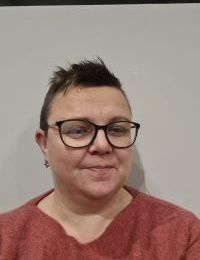
Kathryn Stagg
Kathryn is mum to four boys: twins and two subsequent singletons. She trained as a breastfeeding peer supporter and volunteered in the groups for years in and around Harrow, NW London, UK. Kathryn caught the breastfeeding support bug, first training as a breastfeeding counsellor with the Association of Breastfeeding Mothers and then as an IBCLC. Kathryn started Breastfeeding Twins and Triplets Facebook group 8 years ago and it now has over 10000 members. It has recently been made into a UK charity. Kathryn is passionate about delivering high-quality breastfeeding support to as many twin and triplet families as possible, creating resources and educating healthcare professionals and breastfeeding supporters. She runs a small private practice and continues to teach music part-time, her original career path.

Tanya van Aswegen
Tanya van Aswegen is an accredited practising dietitian with over 15 years of extensive experience in clinical and public health nutrition across diverse cultural landscapes, including Australia, the United Arab Emirates, South Africa, and the United Kingdom. Tanya has also worked on a policy and advocacy level with UNICEF and the World Health Organisation to improve nutrition and health outcomes for women and children at a country level. She holds a BSc Degree in Nutrition and Dietetics and a Master of Public Health degree and is currently working in private practice focussing on optimising early life nutrition and specifically supporting breastfed infants with food intolerances and allergies.

Bodo Melnik
Dr Bodo Melnik has been an associate professor and senior lecturer at the University of Osnabrück since 1994. His major research interests include acne, diet and acne, sebaceous and epidermal lipid metabolism, milk signalling, milk exosomes, milk microRNA-mediated signal transduction, epigenetics of milk microRNAs and long-noncoding RNAs in health and disease. He is a member of the European Society for Dermatological Research.
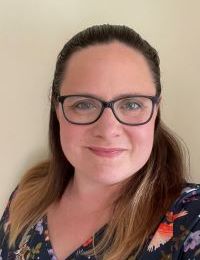
Alexandra Kent
Dr Alexandra Kent is a senior lecturer in psychology at Keele University, UK. Her research broadly explores how we use language to perform social actions. She is particularly interested in how individuals seek help and advice from professionals in times of personal crisis. A key research programme for her focuses on how the language around new motherhood and infant feeding can empower or inhibit new parents as they get used to their new role.

Marta Guoth-Gumberger
Marta Guoth-Gumberger is an IBCLC and pre and perinatal somatic practitioner based in Germany. She works in private practice. She has worked intensively on the topic of the lingual frenulum in breastfeeding counselling, research, publications and teaching. She is the author of many publications and runs the website www.breastfeeding-support.de.
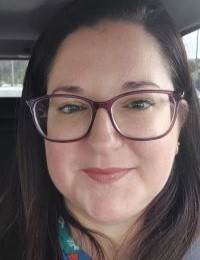
Rhian Cramer
Dr Rhian Cramer is a registered nurse, midwife, childbirth educator and lactation consultant with experience practicing in a range of metropolitan, regional and rural healthcare settings in Australia. Rhian has been working as a nursing and midwifery academic since 2014, primarily teaching pre-registration Midwifery students and especially enjoys partnering with health services in the education of new generations of nurses and midwives. Rhian’s research focus is on the education of midwifery students, community education on normal birth and breastfeeding, and the potential positive health impact of breastfeeding and breast milk for women, babies and families in Australia and globally.